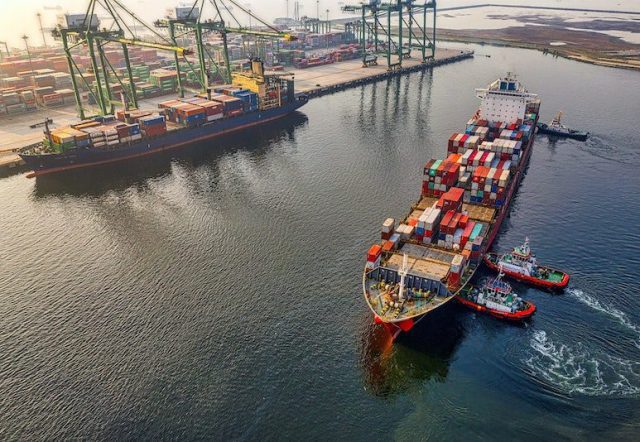Hong Kong & Singapore Target to Implement Global Minimum Tax Rate of 15% in 2025 for Large Multi-National Enterprises, Complying with BEPS 2.0 – Base Erosion & Profit Shifting
25th February 2023 | Hong Kong
Hong Kong and Singapore in the respective 2023 Budget Speech, have set a target to implement global minimum tax rate of 15% in 2025 for Large Multi-National Enterprises (MNEs), complying with BEPS 2.0 – Base Erosion & Profit Shifting. Base erosion and profit shifting (BEPS) refers to tax planning strategies used by multinational enterprises that exploit gaps and mismatches in tax rules to avoid paying tax. Developing countries’ higher reliance on corporate income tax means they suffer from BEPS disproportionately. BEPS practices cost countries USD 100-240 billion in lost revenue annually. Working together within OECD/G20 Inclusive Framework on BEPS, over 135 countries and jurisdictions are collaborating on the implementation of 15 measures to tackle tax avoidance, improve the coherence of international tax rules and ensure a more transparent tax environment. On 2nd February 2023, the OECD/G20 Inclusive Framework on BEPS released technical guidance to assist governments with implementation of the landmark reform to the international tax system, which will ensure multinational enterprises (MNEs) will be subject to a 15% effective minimum tax rate. More info below.
“ Hong Kong & Singapore Target to Implement Global Minimum Tax Rate of 15% in 2025 for Large Multi-National Enterprises, Complying with BEPS 2.0 – Base Erosion & Profit Shifting “
International tax reform: OECD releases technical guidance for implementation of the global minimum tax
2nd Feb 2023 – The OECD/G20 Inclusive Framework on BEPS released today technical guidance to assist governments with implementation of the landmark reform to the international tax system, which will ensure multinational enterprises (MNEs) will be subject to a 15% effective minimum tax rate.
The Agreed Administrative Guidance for the Pillar Two GloBE Rules will ensure co-ordinated outcomes and greater certainty for businesses as they move to apply the global minimum corporate tax rules from the beginning of 2024. Together with the December 2022 publication of the Safe Harbours and Penalty Relief document and public consultations on the GloBE Information Return and Tax Certainty, today’s release finalises the Implementation Framework as set out in the October 2021 Statement on the Two-Pillar Solution to Address the Tax Challenges Arising from the Digitalisation of the Economy.
The document issued today includes guidance on the recognition of the United States’ minimum tax (known as the Global Intangible Low-Taxed Income or “GILTI”) under the GloBE Rules and on the design of Qualified Domestic Minimum Top-up Taxes. It also includes more general guidance on the scope, operation and transitional elements of the GloBE Rules to allow Inclusive Framework members that are in the process of implementing the rules to reflect this guidance in their domestic legislation in a co-ordinated manner. The guidance responds to stakeholder feedback on technical issues, such as the collection of top up tax in a jurisdiction in a period where the jurisdiction has no GloBE income, and the treatment of debt releases and certain tax credit equity structures.
“The release of today’s guidance represents the final but significant piece of work on the GloBE Rules that the Inclusive Framework members had committed to deliver as part of the implementation framework,” said Grace Perez-Navarro, Director of the OECD Centre for Tax Policy and Administration. “While this brings an end to the work we had set for ourselves in October 2021, we will continue, over the coming months, to work hard to ensure that the rules are implemented in a co-ordinated and administrable manner. This will include listening to stakeholders on how the operation of the rules can be further refined to reduce compliance costs and achieve better tax certainty for business and how we can optimise the information to be reported in the GloBE Information Return, while also developing a robust and transparent peer review process and expanding our capacity building efforts.”
The Agreed Administrative Guidance will be incorporated into a revised version of the Commentary that will be released later this year and replace the original version of the Commentary issued in March 2022. The Inclusive Framework will continue to release further Agreed Administrative Guidance on an ongoing basis, to ensure that the GloBE Rules continue to be implemented and applied in a co-ordinated manner.
Going forward, the Inclusive Framework expects to finalise the model provision for the Subject to Tax Rule and the related multilateral instrument to assist in its implementation. Under Pillar One, technical work is still ongoing with the aim to finalise a new Multilateral Convention by mid-2023, for entry into force in 2024.
For more information on the Model GloBE Rules, visit https://oe.cd/pillar-two-model-rules.
OECD – Base erosion and profit shifting (BEPS)
What is BEPS?
Base erosion and profit shifting (BEPS) refers to tax planning strategies used by multinational enterprises that exploit gaps and mismatches in tax rules to avoid paying tax. Developing countries’ higher reliance on corporate income tax means they suffer from BEPS disproportionately. BEPS practices cost countries USD 100-240 billion in lost revenue annually. Working together within OECD/G20 Inclusive Framework on BEPS, over 135 countries and jurisdictions are collaborating on the implementation of 15 measures to tackle tax avoidance, improve the coherence of international tax rules and ensure a more transparent tax environment.
BEPS refers to tax planning strategies that exploit gaps and mismatches in tax rules to artificially shift profits to low or no-tax locations where there is little or no economic activity or to erode tax bases through deductible payments such as interest or royalties. Although some of the schemes used are illegal, most are not. This undermines the fairness and integrity of tax systems because businesses that operate across borders can use BEPS to gain a competitive advantage over enterprises that operate at a domestic level. Moreover, when taxpayers see multinational corporations legally avoiding income tax, it undermines voluntary compliance by all taxpayers.
BEPS is of major significance for developing countries due to their heavy reliance on corporate income tax, particularly from multinational enterprises. Engaging developing countries in the international tax agenda is important to ensure that they receive support to address their specific needs and can effectively participate in the process of standard-setting on international tax.
The OECD/G20 Inclusive Framework on BEPS brings together over 135 countries and jurisdictions to collaborate on the implementation of the BEPS Package.
The BEPS package provides 15 Actions that equip governments with the domestic and international instruments needed to tackle tax avoidance. Countries now have the tools to ensure that profits are taxed where economic activities generating the profits are performed and where value is created. These tools also give businesses greater certainty by reducing disputes over the application of international tax rules and standardising compliance requirements.
OECD and G20 countries along with developing countries that are participating in the implementation of the BEPS Package and the ongoing development of anti-BEPS international standards are establishing a modern international tax framework to ensure profits are taxed where economic activity and value creation occur. Work is being carried out to support all countries interested in implementing and applying the rules in a consistent and coherent manner, particularly those for which capacity building is an important issue.
The Inclusive Framework on BEPS allows interested countries and jurisdictions to work with OECD and G20 members on developing standards on BEPS related issues and review and monitor the implementation of the BEPS Package.
The OECD/G20 Inclusive Framework on BEPS actively monitors the implementation of all the BEPS Actions and reports annually to the G20 on this progress. The implementation of the BEPS Minimum Standards is of particular importance, and each of these is the subject of a peer review process that evaluates the implementation by each member and provides clear recommendations for improvement. Peer reviews of the BEPS minimum standards are an essential tool to ensure the effective implementation of the BEPS package. First results were available for Action 5 in 2017, for Action 13 and Action 14 in 2018, and for Action 6 in 2019. The results of the peer reviews show strong implementation throughout the world. All countries and jurisdictions joining the framework will participate in this review process, which allows members to review their own tax systems and to identify and remove elements that pose BEPS risks.
Peer review and monitoring process of the four minimum standards:
The peer reviews of the BEPS minimum standards will continue, including with assessments of substance in no or low tax jurisdictions under Action 5 and a full schedule of reviews of mutual agreement procedures under Action 14.
Additional signatures and ratification of the Multilateral Instrument will increase the implementation of a number of BEPS Actions, particularly countering treaty shopping under Action 6.
Inclusive Framework members have committed to report aggregate and anonymised data in respect of the Country-by-Country reports that they receive under Action 13. This data is vital to the work under Action 11 on measuring the impact of BEPS. As more data becomes available, a fuller picture can be shown of the true cost of tax avoidance and the benefit of the BEPS Project.
Finally, addressing the tax challenges arising from digitalisation is a key policy issue today. The Inclusive Framework has made major progress by developing two-pillar approach and aims to produce a consensus-based, long-term solution for delivery to the G20 in 2021.
Sign Up / Register
Caproasia Users
- Manage $20 million to $3 billion of assets
- Invest $3 million to $300 million
- Advise institutions, billionaires, UHNWs & HNWs
Caproasia Platforms | 11,000 Investors & Advisors
- Caproasia.com
- Caproasia Access
- Caproasia Events
- The Financial Centre | Find Services
- Membership
- Family Office Circle
- Professional Investor Circle
- Investor Relations Network
Monthly Roundtable & Networking
Family Office Programs
The 2025 Investment Day
- March - Hong Kong
- March - Singapore
- July - Hong Kong
- July - Singapore
- Sept- Hong Kong
- Sept - Singapore
- Oct- Hong Kong
- Nov - Singapore
- Visit: The Investment Day | Register: Click here
Caproasia Summits
- The Institutional Investor Summit
- The Investment / Alternatives Summit
- The Private Wealth Summit
- The Family Office Summit
- The CEO & Entrepreneur Summit
- The Capital Markets Summit
- The ESG / Sustainable Investment Summit
































